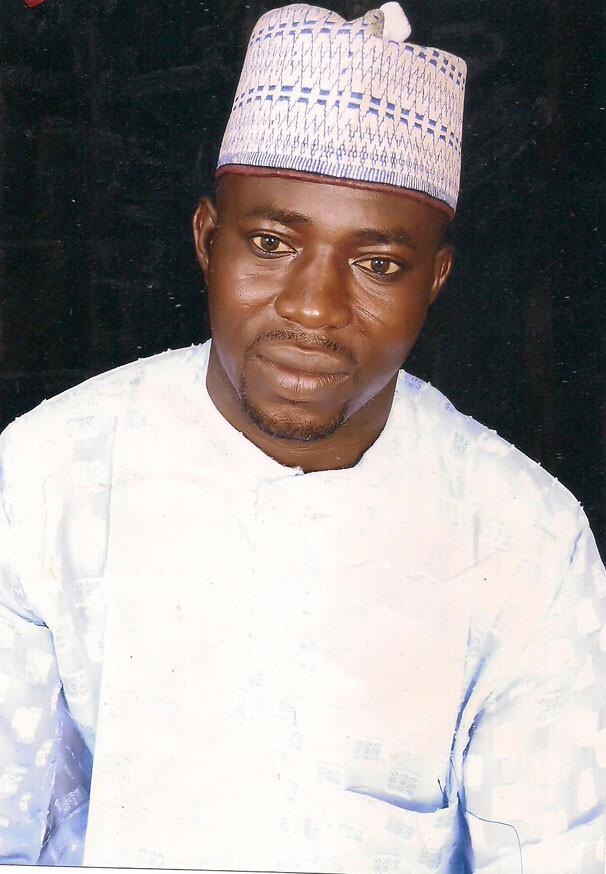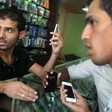Rights and Accountability 14 August 2014

A photo released by Nigeria’s Islamic Movement of Kabir Jabril, one of the dead.
On 25 July Nigerian soldiers attacked the annual al-Quds Day demonstration in support of Palestine in Zaria, a city in Kaduna State in northern Nigeria.
The attack killed 33 demonstrators and bystanders including three children of the prominent scholar Sheikh Ibrahim El-Zakzaky, head of the Islamic Movement. The movement, which organized the demonstration, is a Nigerian Shia group.
The UK-based Islamic Human Rights Commission (IHRC) sent a fact finding mission to Zaria and “returned to the UK with harrowing details of human rights abuses committed by the [Nigerian] armed forces,” it stated in a press release on Saturday. The group says its full report is forthcoming.
IHRC characterizes Zakzaky as “a fierce critic of political corruption as well as the so-called Boko Haram movement” — the al-Qaida-linked Nigerian extremist group which infamously kidnapped 276 schoolgirls in April.
In addition to firing on the demonstration, soldiers arrested numerous protestors. The IHRC says it “found evidence that many of those arrested died in military custody. Reports indicate that some demonstrators were taken into detention alive and well and later emerged dead with signs of torture on their bodies. Others who were injured were detained for hours and brutalized before being allowed to seek medical treatment.”
The IHRC notes that “The march in Zaria was one of at least fifty that took place in towns and cities across Nigeria. Al-Quds Day has been observed peacefully in Nigeria over the last 33 years under the leadership of the Islamic Movement in Nigeria, a mass movement led by Sheikh Zakzaky.”
Numerous groups and notables have expressed their condolences and outrage including the Christian Association of Nigeria, other Nigerian Christians, numerous prominent Shiite scholars and organizations from Iran, Lebanon and Pakistan and politicians from Nigeria’s Katsina State legislature.
The Islamic Movement has posted the names of those killed on its website, along with photos of some of the dead.
“Out of control”
The Chair of IHRC, Massoud Shadjareh, states in the press release:
These events strongly suggest that a section of the Nigerian army is totally out of control and is committing murder and extra judicial killings with apparent impunity. The Nigerian government and the international community have to hold the perpetrators of these abuses to account for their barbaric actions and make sure that justice is served not only for the sake of the victims sake but to ensure a just and peaceful environment for all the country’s inhabitants.
The IHRC says there are “accusations that the pro-Zionist Nigerian government is serving the interests of Tel Aviv by suppressing pro-Palestine activities.”
Nigeria’s current government under President Goodluck Jonathan has indeed affirmed its ties with Israel, and the country imports arms from Israel. In 2013 Jonathan made pilgrimage to Jerusalem and called for “even stronger relations between Nigeria and the state of Israel.”
Also last year, an electronic mass surveillance system installed by Elbit Systems became a national scandal in Nigeria.
Yet why one of more than fifty al-Quds Day protests in Nigeria was targeted is not clear. Idaho State University professor Allen Christelow offers a possible explanation on the blog Informed Comment:
The incident on Quds day in Zaria was preceded only two days earlier by bomb attacks in the nearby city of Kaduna targeting a likely rival of Goodluck Jonathan in 2015 elections, retired general Muhammadu Buhari, and a leader of the Tijaniyya Sufi order, Dahiru Bauchi, who had led an unsuccessful effort to negotiate a truce between the government and Boko Haram in 2012. Both of them survived but 82 other people were killed. Suspicion naturally fell on Boko Haram, but there were rumors that government officials were manipulating Boko Haram in pursuit of their own goals.
Ibrahim al-Zakzaky was an advocate of such conspiracy theories, and this would help explain the anger that military authorities felt toward him.
Christelow’s analysis suggests that the al-Quds Day attack on pro-Palestine marchers and the heavy toll specifically on the El-Zakzaky family is more linked to domestic Nigerian military politics than the affinity between the Jonathan and Netanyahu governments.




